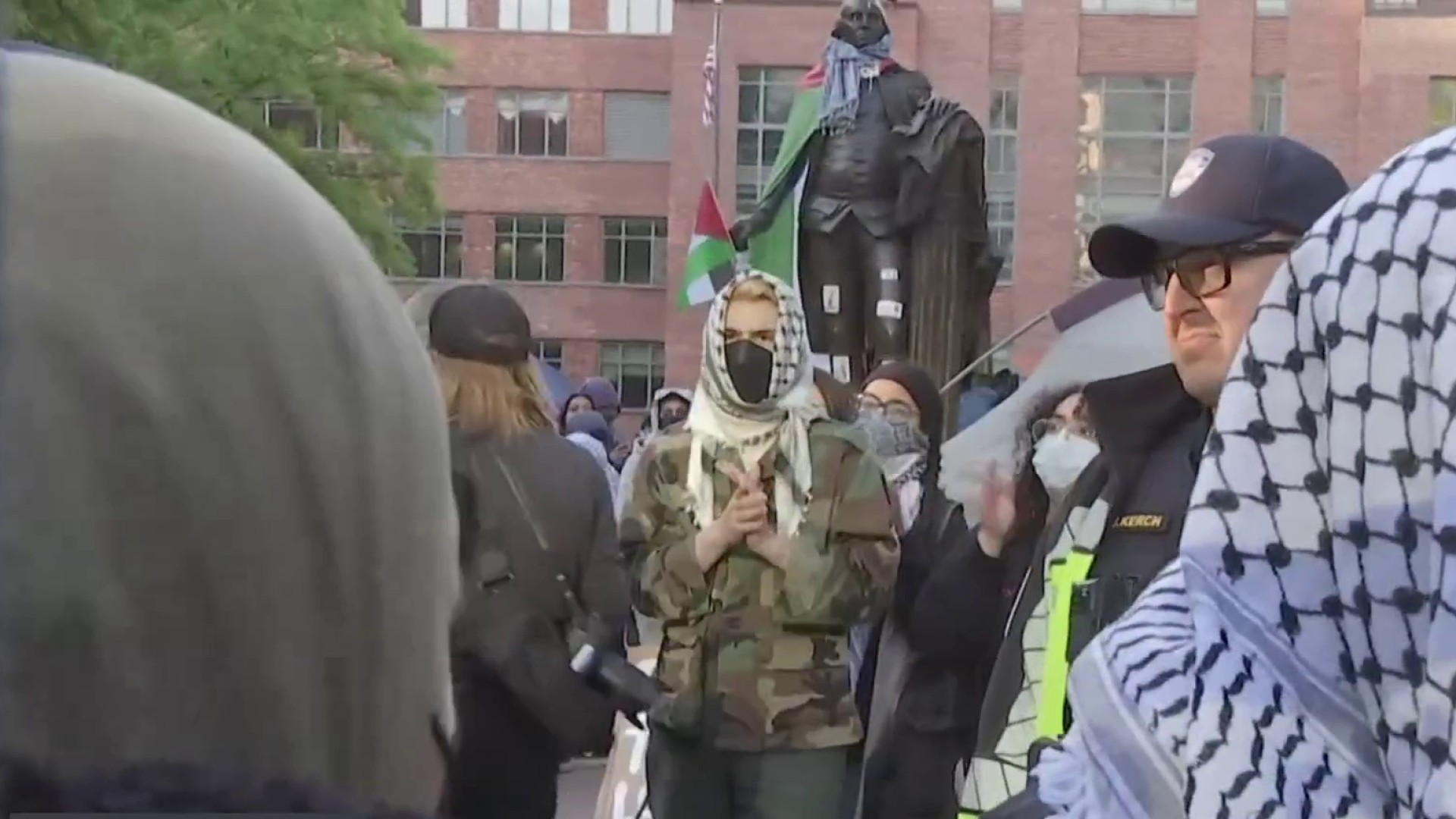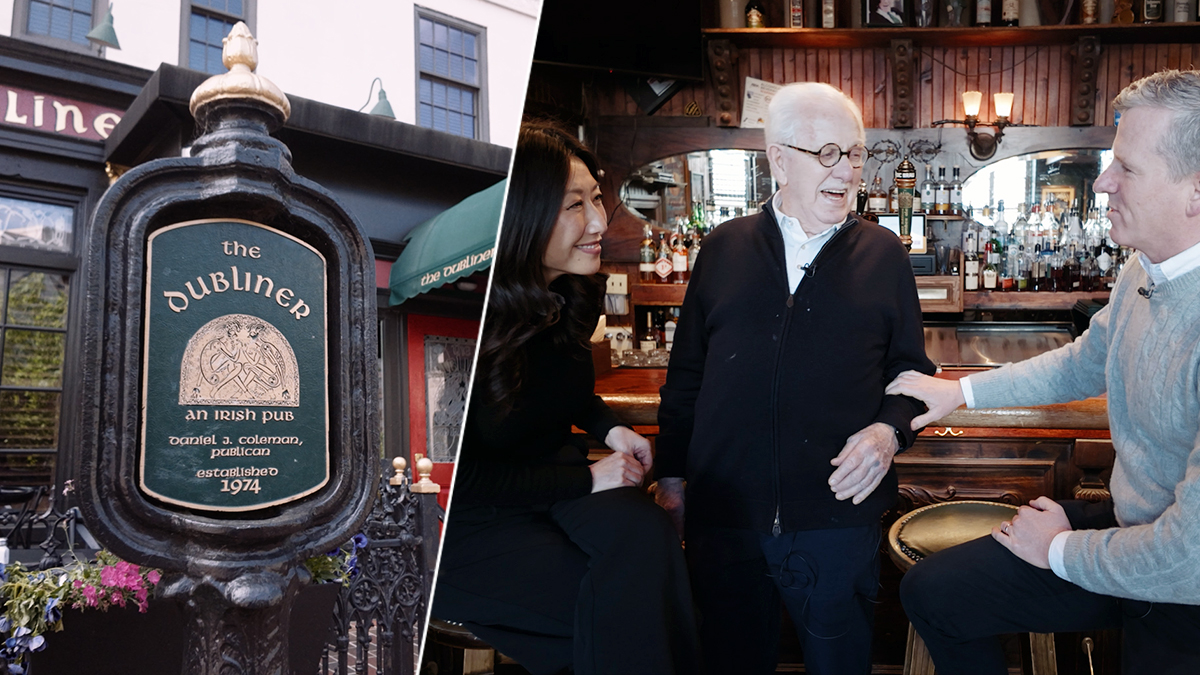A defense lawyer attacked the credibility of the key witness in the corruption trial against former Virginia Gov. Bob McDonnell and his wife on Friday, zeroing in on inconsistencies in what the former Star Scientific CEO told investigators.
Jonnie Williams, who is testifying under immunity, spent most of the morning repeatedly replying, "I don't recall" and asking that questions be repeated. He appeared confused by some of the inquiries.
More explosive evidence was revealed in court Friday as Maureen McDonnell's defense attorney showed that Maureen and Williams had shared more than 1,200 texts and calls over a nearly two-year period, including 52 in one day.
On the day of the earthquake in Virginia in 2011, Maureen allegedly wrote to Williams, "I felt the EARTH MOVE AND I WASNT HAVING SEX!!!!
Email from Maureen McDonnell to Jonnie Willliams the day of aug 2011 earthquake: "I felt the EARTH MOVE AND I WASNT HAVING SEX!!!! — Julie Carey (@JulieCareyNBC) August 1, 2014
In court, Williams was asked, "Would it surprise you to find out you and Maureen McDonnell had over 1,200 texts and phone calls in a period from April 2011 to February 2013?"
Local
Washington, D.C., Maryland and Virginia local news, events and information
He replied, "I was busy with Mrs. McDonnell." He said nearly all of the conversations or texts were for business purposes.
Williams spent much of Thursday explaining his relationship he had with the McDonnells, telling the court that he did not have a romantic relationship with Maureen.
A defense attorney had said earlier this week that Maureen McDonnell -- whose marriage with her frequently absent husband was allegedly on the rocks -- had developed a crush on Williams, and that Williams had deceived her into believing he cared for her.
In court Friday, Maureen McDonnell's attorney Bill Burck challenged Williams on his changing version of events to the FBI and prosecutors.
Defense lawyers are also challenging Williams' credibility in other ways.
Burck zeroed in on a deal Williams made with a friend to transfer Star Scientific stock shares in exchange for $10 million. Williams made the arrangement to swap stock for cash because he thought it would look bad to seek a lot of his company's stock.
"Did you ever tell the prosecutors that you did not want the share transaction disclosed because there might be security law issues?" Burck asked.
"I may have. I don't recall," said Williams.
When Williams was reminded that he just spoke with prosecutors about the deal the Sunday before trial, he said, "I'm confused about that."
The defense then introduced government notes from Sunday's meeting and asked Williams, "You don't think you committed securities fraud?"
"I don't think so," Williams replied.
The McDonnells are charged in a 14-count federal indictment with taking more than $165,000 in gifts and loans from Williams in exchange for their help promoting his company's products, primarily the dietary supplement Anatabloc. If convicted, they could face decades in prison.
Williams detailed a pattern of requests for gifts by Maureen McDonnell and a $20,000 loan which former Gov. Bob McDonnell had requested. He also spoke of several events to promote Anatabloc that the couple attended -- including the product's official launch at the governor's mansion. Williams said he handed out eight $25,000 checks to medical researchers at that event "to prime the pump'' for what he hoped would be state-sponsored clinical trials of Anatabloc.
He also talked about his discussions with the governor about transferring some Star Scientific stock to McDonnell so he could borrow against it. Williams said he wanted to keep the deal secret because he knew it was wrong, and McDonnell went along.
"It could be violating laws. I don't know that. It could be,'' he said.
Among the gifts from Williams was a Rolex watch he said Maureen requested and then gave to her husband for Christmas that year.
"It was a bad decision on my part to buy that watch when she asked for it,'' Williams said. "I shouldn't have had to buy things like that to get the help I needed.''
The watch was passed to the jury, where each juror briefly inspected it as a silent courtroom watched.
Maureen McDonnell also admired Williams' Ferrari and asked if anything like that would be available at his lake house, where the McDonnell family was preparing to spend a short vacation. Williams said no.
"She said, 'It would be nice. We never get to do things like this,''' Williams testified.'
He said he had the car delivered. The jury was shown photos of Bob McDonnell driving the sports car.
While Williams was generous with some gifts, he said he rebuffed other requests by Maureen McDonnell because he thought they were too visible. He said one of the McDonnells' daughters called him at her mother's direction, saying Williams should buy the daughter a car. He also said Maureen McDonnell asked Williams to sell his luxury SUV to her at a discount so she could give it to one of her sons.
Williams said Maureen also asked Williams to purchase money-losing Virginia Beach rental properties the McDonnells owned - another request he rejected.
On Wednesday, however, he testified about taking the first lady on a shopping trip to New York City and spending $20,000 on designer apparel and accessories.
Attorney Henry Asbill pressed Williams Friday on whether Bob McDonnell was aware of the shopping spree. Williams said he assumed the governor would have seen the shopping bags and known about the shopping trip -- an assumption Asbill pressed.
“You didn't know whether he saw the bags or not, do you?” Asbill asked.
He also asked whether Bob McDonnell had thanked Williams for paying for Maureen's shopping spree. Williams said no.
“Now that would have been really awkward,” Williams said.
The prosecutor asked Williams if he lavished the first couple with gifts and loans because they were friends.
"The McDonnells are not my personal friends,'' Williams said. "I thought it was good for my company.''
After investigators interviewed both Maureen McDonnell and Williams, Maureen returned several of the items Williams had bought her on that shopping spree. With the box of clothes, Maureen included a note indicating she and Williams had previously discussed giving the clothes to Williams' daughter or donating them to charity.
Williams said he had a "sinking feeling'' as he read the note and re-read it several times.
"This letter was a fabrication,'' Williams said. "I felt sorry for her.''



